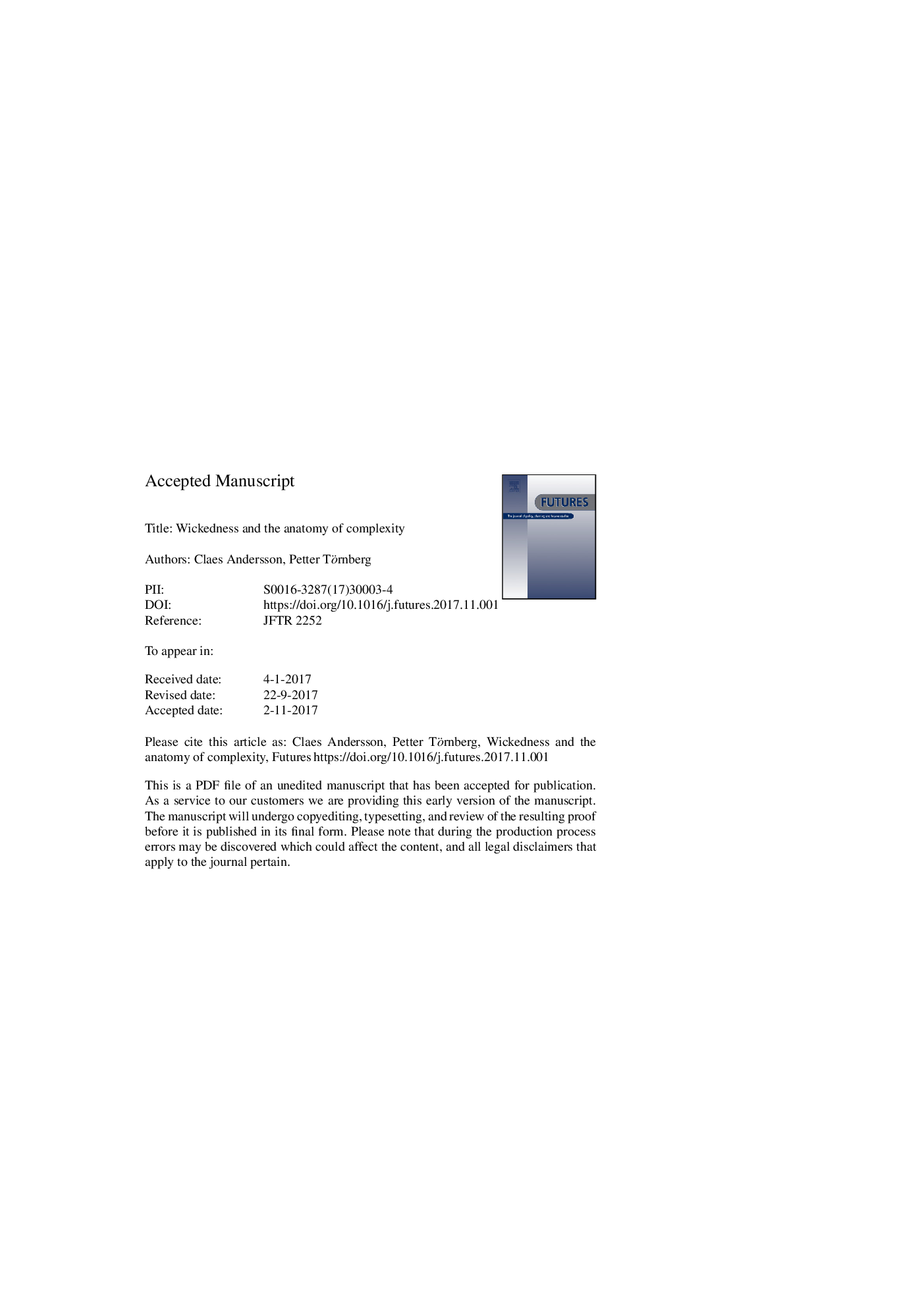| Article ID | Journal | Published Year | Pages | File Type |
|---|---|---|---|---|
| 7423888 | Futures | 2018 | 38 Pages |
Abstract
Traditional scientific policy approaches and tools are increasingly seen as inadequate, or even counter-productive, for many purposes. In response to these shortcomings, a new wave of approaches has emerged based on the idea that societal systems are irreducibly complex. The new categories that are thereby introduced - like “complex” or “wicked” - suffer, however, by a lack of shared understanding. We here aim to reduce this confusion by developing a meta-ontological map of types of systems that have the potential to “overwhelm us”: characteristic types of problems, attributions of function, manners of design and governance, and generating and maintaining processes and phenomena. This permits us, in a new way, to outline an inner anatomy of the motley collection of system types that we tend to call “complex”. Wicked problems here emerge as the product of an ontologically distinct and describable type of system that blends dynamical and organizational complexity. The framework is intended to provide systematic meta-theoretical support for approaching complexity and wickedness in policy and design. We also points to a potential causal connection between innovation and wickedness as a basis for further theoretical improvement.
Related Topics
Social Sciences and Humanities
Business, Management and Accounting
Business and International Management
Authors
Claes Andersson, Petter Törnberg,
